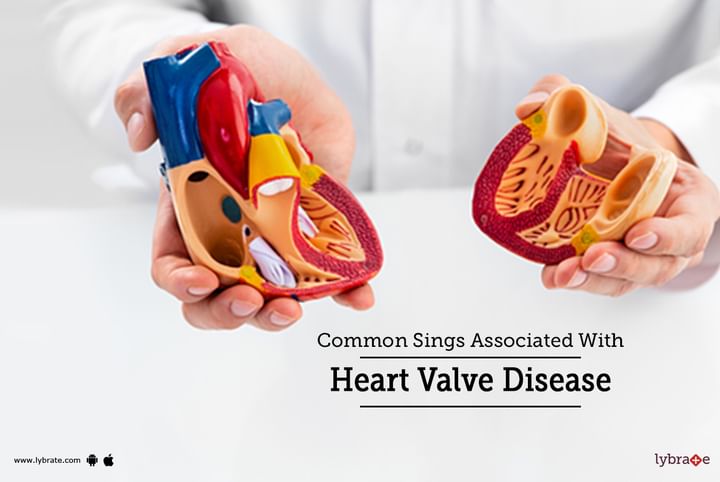Common Sings Associated With Heart Valve Disease
Valves of the heart allow the blood to flow in one direction and prevent it from flowing back into the ventricles of the heart. Usually, complications in the heart valve occur when their functioning is impaired.
Heart valve diseases can be classified as follows:
1. Valvular stenosis: This condition occurs when the valves of the heart do not open completely because of stiffness. As the opening is narrow, the heart has to work harder to pump blood. This condition can lead to failure of the heart.
2. Valvular insufficiency: In this condition, the valve does not close tightly and it causes some of the blood to flow back to the valve. And with the deterioration in the condition, the heart has to work harder to pump blood.
Types and causes of heart valve diseases:
1. Congenital valve disease: It often involves pulmonary or aortic valves that do not function properly. These valves may not have sufficient tissue flaps, they may be of the wrong size or shape, or they may lack an opening through which blood can flow in a proper manner.
2. Acquired valve disease: The structure of the valve changes due to various infections or rheumatic fever. Rheumatic fever is caused by a bacterial infection that had not been treated. It tends to occur in children and although the valves are normal at first, problems develop gradually.
3. Bicuspid aortic valve disease: It impairs the aortic valve. Instead of the regular three cusps, the bicuspid valve only has two. This may cause the valve to be stiff or leak.
4. Mitral valve prolapse: It is a condition in which the two valve flaps of the mitral valve do not close smoothly or evenly, but instead bulge in an upward direction into the left atrium. it is also known as a click-murmur syndrome, Barlow's syndrome, or floppy valve syndrome.
Common symptoms of heart valve diseases include:
1. Dizziness, weakness, and severe discomfort while performing daily life activities
2. Irregular heartbeats skipped beats and rapid heart rhythm
3. Rapid weight gain
4. Swelling in your ankles, abdomen, and feet
5. Shortness of breath
If you experience any of these symptoms, immediately seek your doctor’s guidance.


+1.svg)
